Process Will Call Transaction
Will Call is a unique feature that allows you to setup products to be picked up based on the address of the location(or warehouse). In general, tax computations for every sales order transactions are always based on where the product will be delivered, that is the Ship to Address. For the Will Call feature however, taxes are computed based on the address of the location. You may setup the tax percentage to be paid by the customer.
This feature is applicable on sales quote, sales order, sales invoices, RMAs and credit memos.
Steps
- Create a New Shipping Method
- Go to the Shipping Module > Setup > Shipping > Shipping Method to load the Shipping Method form.
- From the Shipping Method form, click on the New button and specify the following fields:
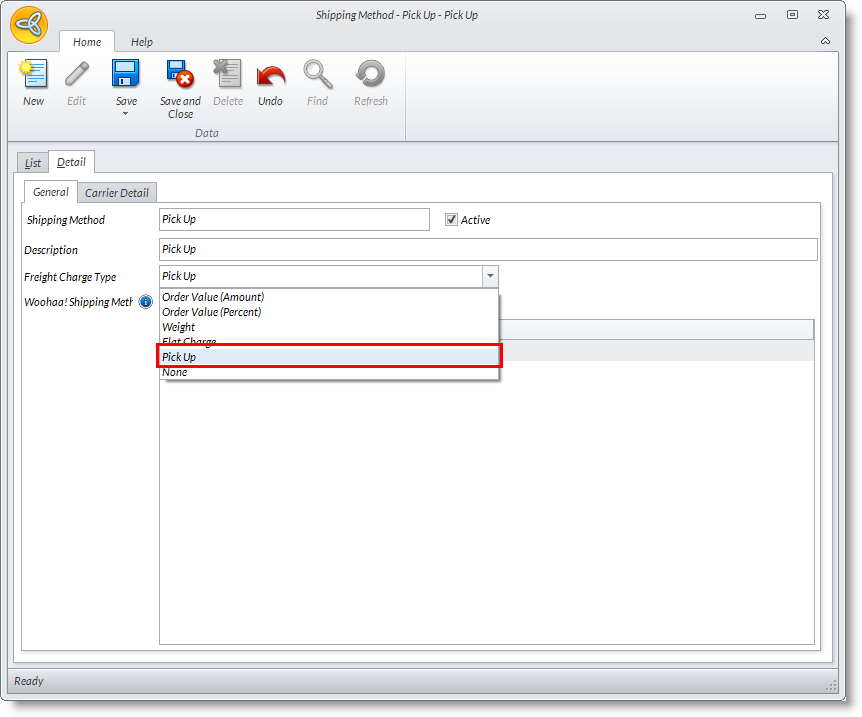
Field Value Shipping Method
Pick Up
Description Pick Up Freight Charge Type Pick Up - Click on Save and Close button.
- To include the Pick Up Shipping Method in the Shipping Method Group, go to the Shipping Module > Setup > Shipping > Group to bring up the Shipping Group form.
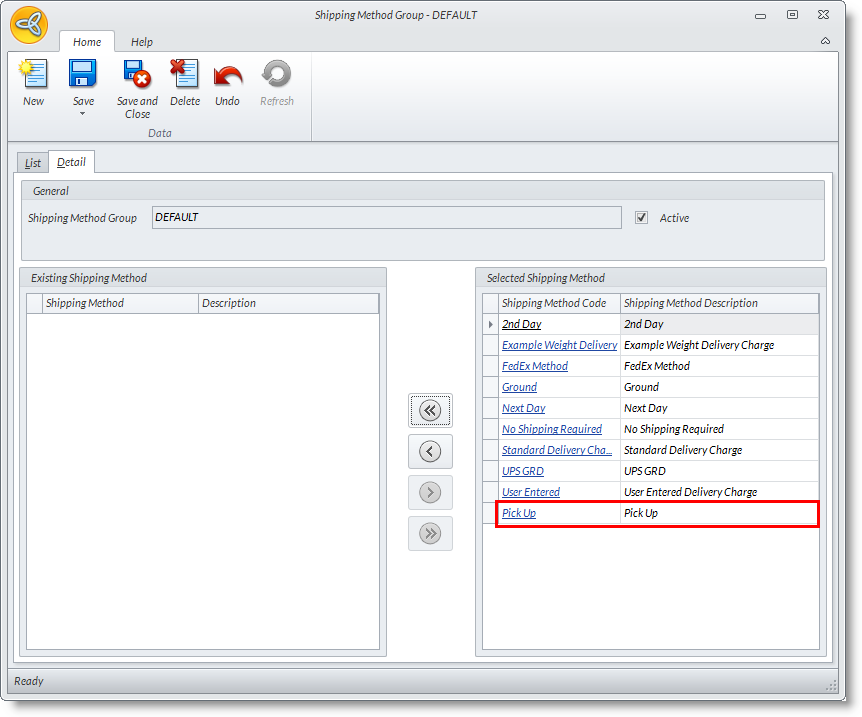
- Select any group on the list of active shipping method groups. Or, you may directly click on the Default Shipping Method Group.
- Add Pick Up to the Selected Shipping Methods.
- Click on Save and Close button.
- Go to the Shipping Module > Setup > Shipping > Shipping Method to load the Shipping Method form.
- Define a Sales Tax Code for an Inventory Location

You only need to perform the first two tasks if you have no other tax component/scheme other than the Sales No Tax. We need to define a tax component that has a flat rate amount for a tax computation to happen. You can define your own sales tax code to MAIN location if you want.

- Create a New Tax Component
- Go to the Accounting Module > Setup > Tax > Tax Component to bring up the Tax Component form.
- Click on the New button and specify the following fields:
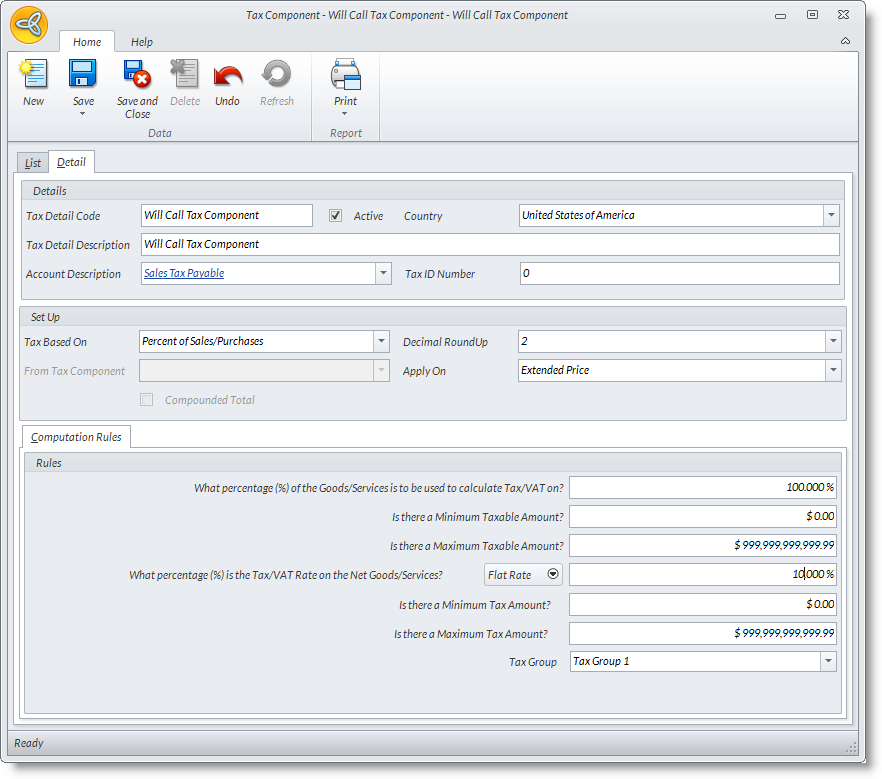
Field Value Tax Detail Code
Will Call Tax Component
Tax Description Will Call Tax Component Account Description Sales Tax Payable Country e.g. United States of America Computation Rules What percentage is the Tax/VAT Rate on the Net Goods/Service Flat Rate (10%) Tax Group Tax Group1 - Click on Save and Close button.
- Go to the Accounting Module > Setup > Tax > Tax Component to bring up the Tax Component form.
- Create a New Tax Scheme
- Go to the Accounting Module > Setup > Tax > Tax Scheme to bring up the Tax Scheme form.
- Click on the New button and specify the following fields:
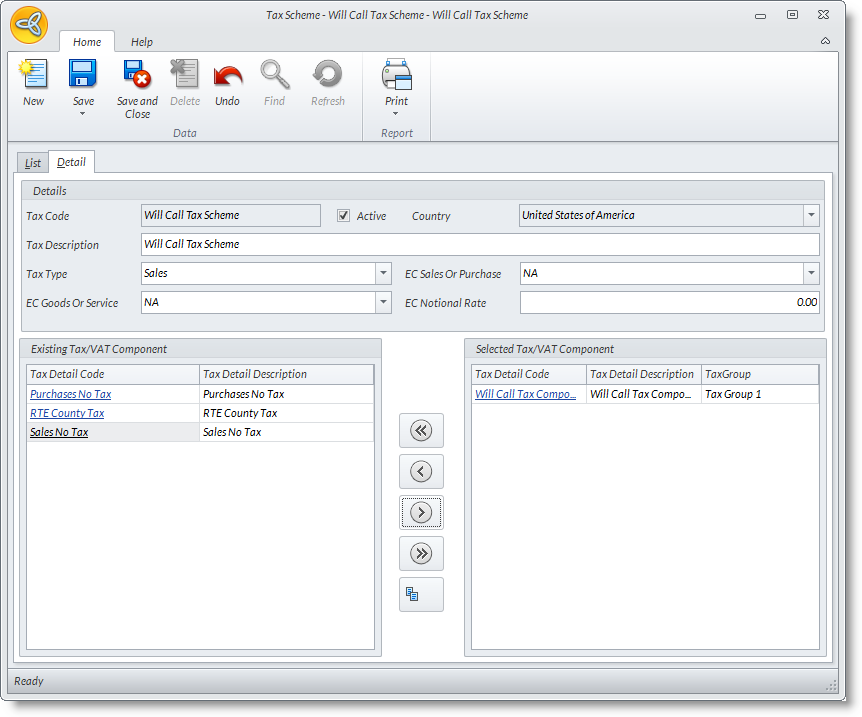
Field Value Tax Code
Will Call Tax Scheme
Tax Type Sales Selected Tax/VAT Component: Will Call Tax Component - Click on Save and Close button.
- Go to the Accounting Module > Setup > Tax > Tax Scheme to bring up the Tax Scheme form.
- Define the Location's Sales Tax Code
- Go to the Inventory Module > Location > Find Location and double click MAIN to bring up the Location form.
- On the Location form, specify the Sales Tax Code to Will Call Tax Scheme.
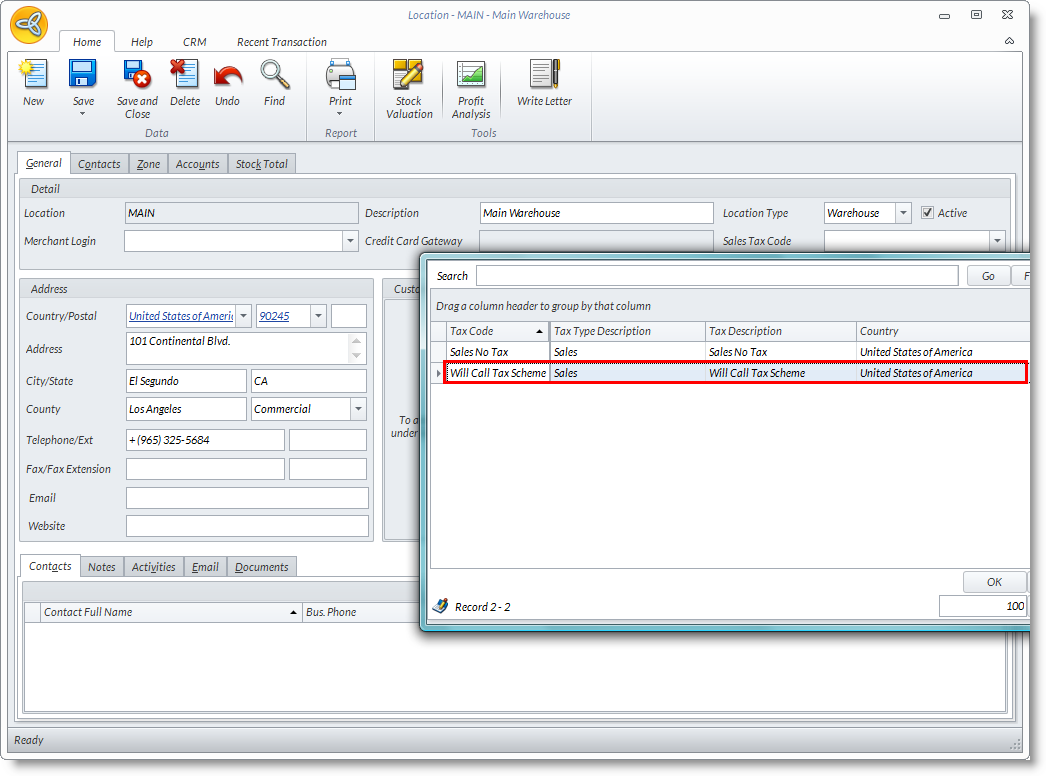
- Click on Save and Closebutton.

You can specify your own sales tax code here but make sure it has a flat rate % value greater than 0.

Using Will Call on Sales Quote/Order/Invoice Transactions
- Go to the Customer Module > Quote/Order/Invoice > New Quote/Order/Invoice to bring up the New Quote/Order/Invoice Dashboard.
- Select any active prospect or customer and double click it to bring up the sales quote form.
- On the Sales Quote/Order/Invoice form specify the following fields:
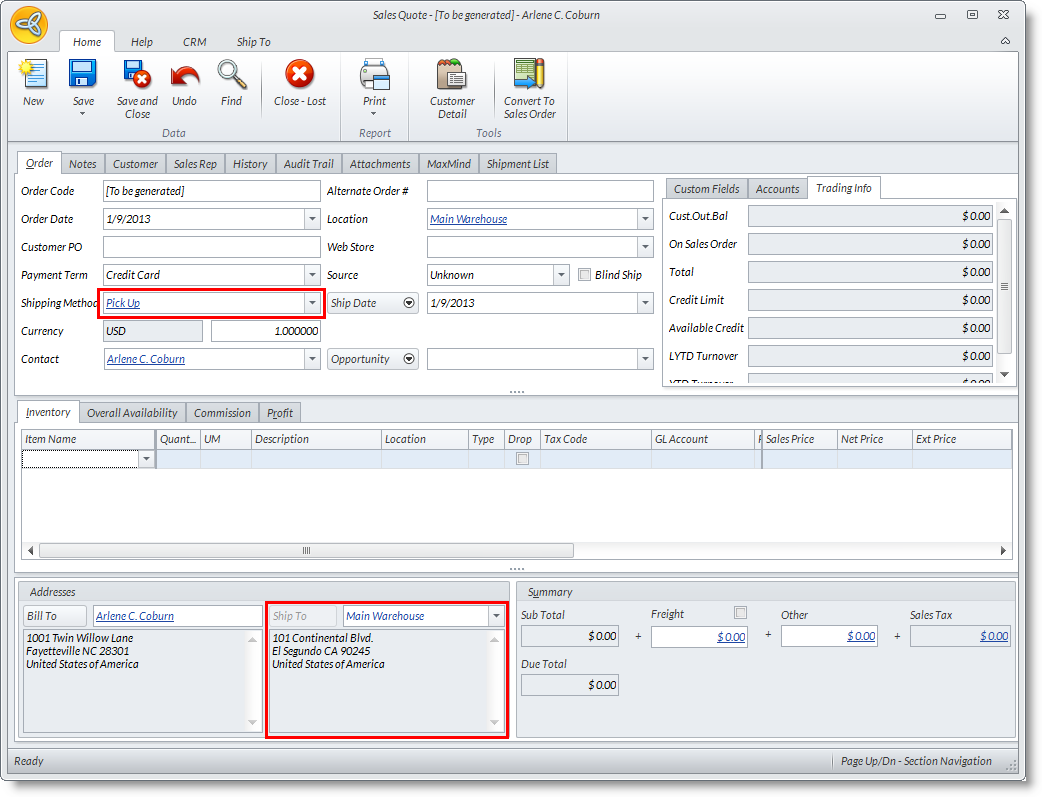

Field Value Shipping Method
Pick Up
(Once selected, the Ship To field will be automatically changed with the address of the default Location)
On the Inventory Grid Add one or more items
(The Tax Code field used will be the sales tax code specified for the selected location)
- Take note of the sales tax computed on the payment summary which should use the flat rate used by the sales tax code specified in the selected location.

- Go to the Customer Module > Quote/Order/Invoice > New Quote/Order/Invoice to bring up the New Quote/Order/Invoice Dashboard.
- Go to the Inventory Module > Location > Find Location and double click MAIN to bring up the Location form.
- Create a New Tax Component
